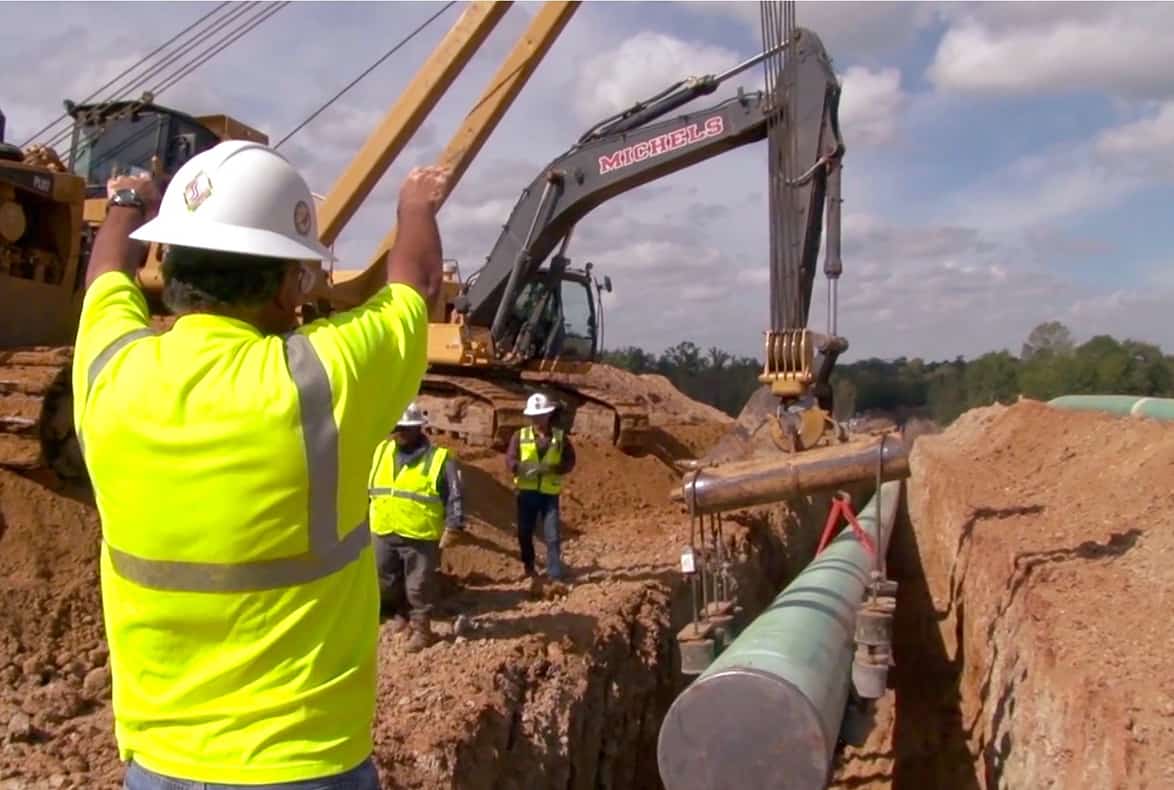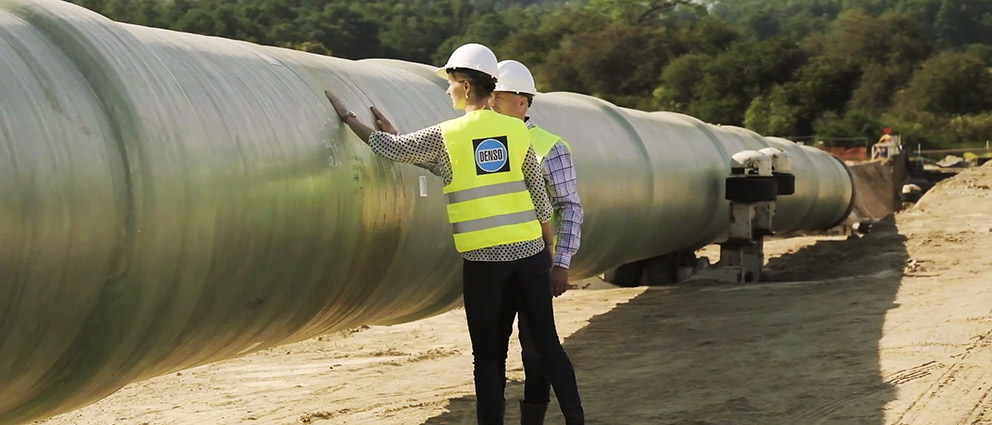7 Key benefits of working with a Midland pipeline construction company
Recognizing the Trick Functions of Pipeline Services and Their Effect On Performance
Pipeline solutions play a crucial role in different industries, affecting operational effectiveness significantly. Secret features, such as advanced tracking innovations and maintenance strategies, are crucial for decreasing downtime. In addition, regulatory compliance guarantees safety and security and environmental management. Nonetheless, the interplay between style, facilities, and financial elements can make complex these processes. Understanding just how these aspects effect general effectiveness elevates important inquiries concerning finest practices and future growths in the field.
The Function of Modern Technology in Pipeline Tracking
As innovations in technology proceed to progress, the significance of effective pipe tracking has become significantly noticeable. Modern pipe systems depend on sophisticated monitoring devices that enhance functional effectiveness and safety. Technologies such as real-time information analytics, sensors, and drones offer operators with immediate insights right into pipeline conditions, allowing them to spot leakages, deterioration, and other prospective problems prior to they escalate into significant troubles.
Furthermore, the assimilation of Net of Points (IoT) tools has actually transformed conventional monitoring approaches, permitting constant monitoring and automated coverage. This positive strategy not only decreases dangers however also maximizes maintenance schedules and source appropriation. Furthermore, progressed software systems help with data visualization and analysis, empowering decision-makers to respond swiftly to abnormalities. Collectively, these technological technologies not only boost pipeline honesty but likewise foster ecological stewardship by alleviating the potential impact of leakages and spills.
Upkeep Methods for Boosted Performance
Efficient upkeep approaches are vital for maximizing pipe effectiveness. Applying anticipating upkeep methods, adhering to routine assessment protocols, and developing robust emergency situation response plans can significantly improve operational reliability. These approaches not just minimize downtime but also add to the general security and stability of pipe systems.
Predictive Upkeep Methods
Predictive upkeep techniques are increasingly identified for their capacity to improve operational performance in pipeline services. By leveraging data analytics and keeping an eye on modern technologies, these techniques make it possible for drivers to anticipate equipment failings prior to they occur. This aggressive strategy decreases unexpected downtime, lowers maintenance expenses, and prolongs the lifespan of critical possessions. Sensing units and IoT gadgets play a crucial function in gathering real-time information, permitting the analysis of tools wellness and efficiency patterns. Artificial intelligence algorithms evaluate this information to identify patterns and anticipate prospective issues. Pipeline operators can set up upkeep tasks during non-peak times, maximizing source allocation and guaranteeing continual procedure. Ultimately, the adoption of predictive upkeep fosters a much more reliable and reliable pipe facilities.

Routine Examination Protocols
Routine inspection procedures act as a cornerstone of maintenance methods targeted at improving performance in pipe operations - Creek Pipe Midland TX. These methods include systematic analyses of pipeline integrity, focusing on spotting prospective concerns before they intensify. Routine examinations generally include aesthetic analyses, leakage discovery innovations, and stress surveillance to ensure peak performance. By adhering to recognized schedules, operators can recognize deterioration, product wear, or obstruction, thus lessening downtime and repair service expenses. In addition, information collected throughout inspections can inform anticipating maintenance initiatives, permitting a proactive method to pipeline management. Ultimately, regular examinations not only expand the life expectancy of pipeline infrastructure however likewise add to more secure and more dependable transportation of sources, reinforcing overall operational efficiency
Emergency Situation Response Planning
Emergency situation response preparation is vital for maintaining performance in pipe operations, guaranteeing that drivers are prepared to deal with unexpected incidents quickly and properly. A well-structured emergency situation response strategy includes clear procedures, assigned duties, and communication approaches to alleviate risks linked with pipeline failures. Normal drills and training enhance team preparedness and familiarize employees with emergency treatments. Additionally, having easily offered sources, such as spill control equipment and emergency call checklists, can substantially reduce feedback times. By incorporating real-time surveillance technologies, drivers can swiftly recognize and respond to issues, minimizing ecological effect and functional downtime. Ultimately, a detailed emergency feedback strategy not only safeguards assets and employees however likewise strengthens the general efficiency of pipe solutions.
Governing Compliance and Safety Requirements
Governing compliance and safety requirements play a necessary duty in the pipeline solutions industry. Pipeline services Midland Texas. Following market regulations guarantees that companies apply reliable safety and security procedures and risk monitoring approaches. This dedication not only safeguards personnel and the setting however also boosts general operational efficiency
Conformity With Market Rules
Conformity with industry laws is important for making sure the security and efficiency of pipe operations. Governing structures, such as those established by the Epa (EPA) and the Pipeline and Hazardous Materials Safety Administration (PHMSA), set strict criteria that drivers have to abide by. These policies cover various facets, consisting of pipe style, building and construction, maintenance, and tracking, ensuring that systems operate safely and properly. Non-compliance can result great site in extreme penalties, operational hold-ups, and ecological risks. By sticking to these policies, pipe business not only shield public security and the environment yet additionally enhance their functional efficiency. Ultimately, regulative compliance cultivates trust among stakeholders, ensuring that pipeline services can run seamlessly in a competitive landscape while fulfilling legal commitments.

Safety Method Application
Effective safety method execution is an important element of pipe procedures, closely connected to regulative compliance and safety and security standards. Sticking to these protocols not just guarantees the defense of workers but likewise safeguards the environment and facilities. A robust safety structure includes routine training, thorough assessments, and making use of ideal security equipment. Organizations must continue to be attentive in updating their methods to mirror modifications in policies and technological developments. Conformity with established security criteria lessens the risk of accidents and enhances functional performance. Furthermore, a culture of security fosters worker involvement and accountability, contributing to overall organizational success. Ultimately, reliable safety and security method execution is extremely important in keeping the stability of pipeline services and attaining lasting sustainability in procedures.
Danger Administration Approaches
Applying durable risk management techniques is crucial for guaranteeing that pipeline operations comply with regulative requirements and safety requirements. Organizations needs to determine prospective risks and examine dangers linked with pipe activities. This includes conducting extensive evaluations, making use of sophisticated surveillance modern technologies, and preserving conformity with market laws. Routine training for employees on safety procedures enhances situational understanding and prepares groups to respond properly to emergencies. Furthermore, creating contingency plans and performing drills can significantly minimize risks. Working together with governing bodies ensures positioning with advancing security criteria. By focusing on risk monitoring, pipeline services can boost functional effectiveness while securing both the atmosphere and public safety and security. Eventually, a proactive approach to risk administration promotes a culture of safety within the industry.
Pipeline Style and Infrastructure Considerations
Exactly how can the layout and infrastructure of pipelines influence general functional performance? The setup of pipelines plays an essential duty in identifying their effectiveness. Efficient style decreases rubbing losses, hence lowering power intake throughout fluid transportation. Aspects such as size, product choice, and design directly effect circulation prices and maintenance demands.
In addition, calculated placement of valves and checking systems improves operational control and safety. Creek Pipe Midland TX. Infrastructure factors to consider, including availability for repair and maintenance, considerably affect downtime and total efficiency
Furthermore, integrating innovative innovation for real-time monitoring promotes timely detection of leakages or ineffectiveness, guaranteeing swift reactions to concerns. The general structural integrity, influenced by material toughness and environmental elements, likewise shapes long-term functional success. Thoughtful layout and robust facilities are necessary for taking full advantage of pipe effectiveness, inevitably contributing to the dependability and success of pipe services.
Ecological Impact and Sustainability Practices
While the demand for pipeline services remains to grow, understanding the environmental effect and embracing sustainability techniques has actually become progressively important. The building and construction and procedure of pipes can notably affect ecological communities, wildlife environments, and water resources. To minimize these influences, firms are applying innovative modern technologies and techniques focused on decreasing discharges, stopping spills, and decreasing land disruption.
Sustainability efforts often include making use of eco-friendly products, enhancing power efficiency, and employing renewable resource resources to power procedures. Additionally, firms are significantly carrying out click for info extensive environmental analyses before project initiation, ensuring compliance with regulations and stakeholder engagement.

Cost Management and Financial Consider Pipeline Solutions
As the pipeline click here to read market expands, effective expense administration and recognizing financial aspects become important for keeping competition. Business encounter different financial pressures, consisting of varying product prices, labor expenditures, and governing conformity costs. To navigate these obstacles, pipeline provider have to embrace strategic monetary planning and budgeting methods.
Purchasing modern technology can improve operational performance, eventually minimizing costs gradually. In addition, effective job monitoring guarantees that resources are designated successfully, minimizing delays and unforeseen expenditures.

Market problems, such as need for power and geopolitical factors, also influence financial viability. Companies should remain nimble, changing their methods in reaction to these external aspects.
Often Asked Inquiries
What Are the Various Kinds Of Pipeline Provider Available?
Numerous kinds of pipe solutions include transport, storage space, maintenance, assessment, and repair work. Each solution plays a vital role in guaranteeing the smooth movement of products, boosting security, and lessening operational disturbances across various fields.
Just How Commonly Should Pipeline Inspections Be Carried Out?
Pipeline examinations need to be performed routinely, usually every one to three years, relying on the kind and condition of the pipe. Extra frequent assessments might be needed for older or risky pipes to guarantee safety and security and integrity.
What Are the Key Causes of Pipeline Failings?
The main root causes of pipe failings consist of corrosion, malfunctioning construction, material flaws, exterior damages, leaks, and operational errors. Each aspect adds considerably to prospective dangers, highlighting the relevance of regular maintenance and monitoring for security.
Just How Can Companies Enhance Pipeline Service Dependability?
Business can boost pipe service integrity by applying normal upkeep routines, using advanced monitoring technologies, conducting complete examinations, purchasing staff member training, and taking on aggressive danger administration methods to expect and reduce potential failings.
What Function Do Operators Play in Pipeline Solutions?
Operators play a necessary function in pipeline services by making certain secure transportation, maintaining equipment, checking system honesty, working with upkeep, and reacting to emergencies. Their knowledge straight influences functional performance and lessens interruptions in service distribution.